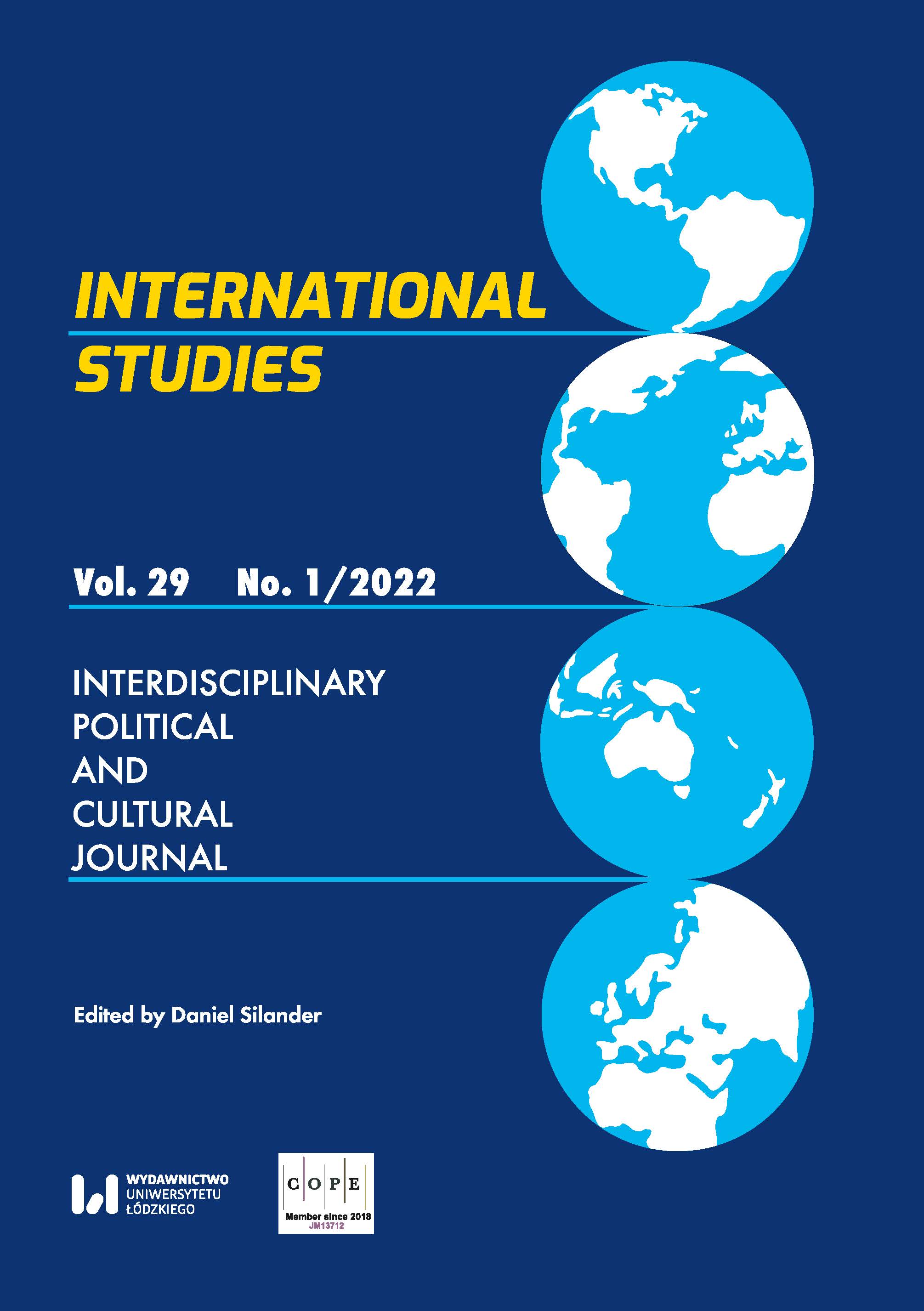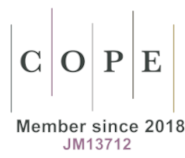The Political Economy of the Kafala Abolishment in Saudi Arabia
DOI:
https://doi.org/10.18778/1641-4233.29.05Keywords:
Kafala abolishment, Vision 2030, Saudi Vision 2030, Kafala Reform in Saudi Arabia, political economy of Kafala, migration policy, labour migration, political economy of migration policy, Kafala systemAbstract
Saudi Arabia – an oil-rich rentier state, receives a large number of guest workers, and they were maintained under the controversial Kafala system. Recently, Saudi Arabia announced to abolish this system to come into effect in March 2021, but excluded domestic workers. Such observations show that there are political-economic incentives for the authority in abolishment apart from the humanitarian ground. Again, the current regime is willing to reduce its dependency on oil by diversifying its economy. Crown prince Mohammad Bin Salman announced massive reform plan – “Saudi Vision 2030” – to bolster FDIs and develop the public sector and service industries, where they need skilled labourers and experts to run their economy, where Kafala is not suitable. In this context, this paper would like to follow the political economy of migration policy as an analytical framework to provide a political-economic analysis of Kafala abolishment in Saudi Arabia by looking at the current transformation and Kafala abolishment.
Downloads
References
Allinson, T. “Saudi ‘Kafala’ Labor Reforms Leave Devil In The Detail”. Deutsche Welle 11.07.2020. Web. 10.08.2021. https://www.dw.com/en/saudi-kafala-labor-reforms-leave-devil-in-the-detail/a-55511689
Google Scholar
Al-Sulayman, F. “State Business Relations And The New Economic Agenda In Saudi Arabia”. Rice University’s Baker Institute for Public Policy, Issue Brief (2018): 1–5.
Google Scholar
Azhari, A. “The Kafāla ‘Sponsorship’ System In Saudi Arabia: A Critical Analysis From The Perspective Of International Human Rights And Islamic Law”. The SOAS Journal Of Postgraduate Research, 10 (2017): 61–80. https://doi.org/10.25501/SOAS.00024680
Google Scholar
Begum, R. “What Will It Take For Saudi Arabia To Abolish Abusive Sponsorship System?”. Human Rights Watch 30.10.2020. Web 20.08.2021. https://www.hrw.org/news/2020/10/30/what-will-it-take-saudi-arabia-abolish-abusive-sponsorship-system
Google Scholar
Damir-Geilsdorf, S. “Contract Labour And Debt Bondage In The Arab Gulf States. Policies And Practices Within The Kafala System”. In: Bonded Labour: Global And Comparative Perspectives (18th–21st Century). Eds. S. Damir-Geilsdorf, U. Lindner, G. Müller, O. Tappe, M. Zeuske. Bielefeld: Transcript-Verlag, 2016: 163–191. https://doi.org/10.1515/9783839437339-008
Google Scholar
DOI: https://doi.org/10.1515/9783839437339-008
“Domestic Worker, 4 Other Professions Not Included In Labor Reforms Initiative”. Saudi Gazette 5.11.2020. Web. 20.08.2021. https://saudigazette.com.sa/article/599964/SAUDI-ARABIA/Domestic-worker-4-other-professions-not-included-in-labor-reforms-initiative
Google Scholar
Facchini, G., Mayda, A.M. “The Political Economy Of Immigration Policy”. UNDP 2009: 1–63. Web. 20.08.2021. http://hdr.undp.org/sites/default/files/hdrp_2009_03.pdf
Google Scholar
Feierstein, J. “Saudi Arabia: Liberalization, Not Democratization”. Afsa.Org 2018. Web. 20.08.2021. https://www.afsa.org/saudi-arabia-liberalization-not-democratization
Google Scholar
Freeman, G.P., Kessler, A.K. “Political Economy And Migration Policy”. Journal Of Ethnic And Migration Studies, 34.4 (2008): 655–678. https://doi.org/10.1080/13691830801961670
Google Scholar
DOI: https://doi.org/10.1080/13691830801961670
Hillman, A.L. “The Political Economy Of Migration Policy”. Migration: A Challenge For Europe. Ed. H. Siebert. Tübingen: J.C.B. Mohr Paul Siebeck, 1994: 263–282. https://www.researchgate.net/publication/275645376
Google Scholar
Khan, A., Harroff-Tavel, H. “Reforming The Kafala: Challenges And Opportunities In Moving Forward”. Asian And Pacific Migration Journal, 20.3–4 (2011): 293–313. https://doi.org/10.1177/011719681102000303
Google Scholar
DOI: https://doi.org/10.1177/011719681102000303
Khashan, H. “Saudi Arabia’s Flawed ‘Vision 2030’”. Middle East Quarterly, 24.1 (2017): 1–8, https://www.meforum.org/middle-east-quarterly/pdfs/6397.pdf
Google Scholar
“Ministry Of Human Resources And Social Development Launches Labor Reforms For Private Sector Workers”. Saudi Press Agency 4.11.2020. Web. 20.08.2021. https://www.spa.gov.sa/viewfullstory.php?lang=en&newsid=2153476#2153476
Google Scholar
Moshashai, D. et al. “Saudi Arabia Plans For Its Economic Future: Vision 2030, The National Transformation Plan And Saudi Fiscal Reform”. British Journal Of Middle Eastern Studies, 47.3 (2018): 381–401. https://doi.org/10.1080/13530194.2018.1500269
Google Scholar
DOI: https://doi.org/10.1080/13530194.2018.1500269
Nereim, V. “Saudi Arabia Loosens Controversial Curbs On Foreign Workers”. Bloomberg.Com 4.11.2020. Web. 20.08.2021. https://www.bloomberg.com/news/articles/2020-11-04/saudi-arabia-eases-controversial-restrictions-on-foreign-workers?sref=MmPRe670
Google Scholar
Rapier, R. “How Much Oil Does Saudi Arabia Really Have?”. Forbes 14.02.2019. Web. 20.08.2021. https://www.forbes.com/sites/rrapier/2019/02/14/how-much-oil-does-saudi-arabia-have/?sh=23fd4cb07b33
Google Scholar
Robinson, K. “What Is The Kafala System?”. Cfr.Org 2021. Web. 12.12.2021. https://www.cfr.org/backgrounder/what-kafala-system
Google Scholar
Rudolph, Ch. “Security And The Political Economy Of International Migration”. American Political Science Review, 97.4 (2003): 603–620. https://doi.org/10.1017/s000305540300090x
Google Scholar
DOI: https://doi.org/10.1017/S000305540300090X
“Saudi Arabia Eases ‘Kafala’ System Restrictions On Migrant Workers”. BBC 4.11.2020. Web. 10.08.2021. https://www.bbc.com/news/world-middle-east-54813515
Google Scholar
“Saudi Arabia: Domestic Workers Face Harsh Abuses”. Human Rights Watch 8.07.2008. Web. 20.08.2021. https://www.hrw.org/news/2008/07/08/saudi-arabia-domestic-workers-face-harsh-abuses
Google Scholar
“Saudi Arabia: Labor Reforms Insufficient”. Human Rights Watch 25.03.2021. Web. 20.08.2021. http://www.hrw.org/news/2021/03/25/saudi-arabia-labor-reforms-insufficient
Google Scholar
“Saudi Arabia: Pre-Crisis GDP Level Will Be Reached in 2022”. Allianz Trade. Web. 20.08.2021. http://www.allianz-trade.com/en_US/resources/country-reports/saudi-arabia.html#:~:text=Structural%20weaknesses,further%2070%20years%20or%20so
Google Scholar
Downloads
Published
Versions
- 2024-02-20 (2)
- 2024-01-16 (1)
How to Cite
Issue
Section
License

This work is licensed under a Creative Commons Attribution-NonCommercial-NoDerivatives 4.0 International License.

















